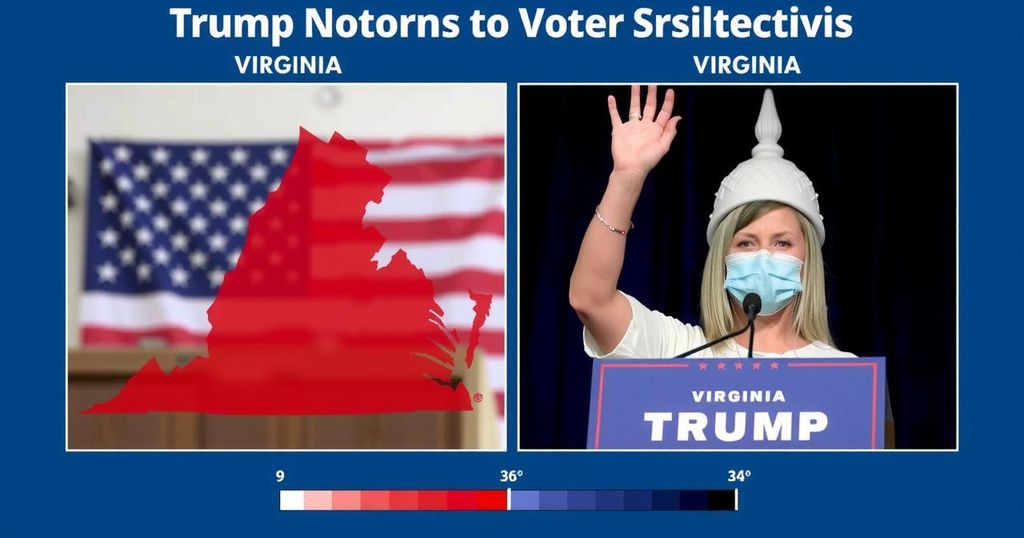Virginia Special Elections: A Crucial Test for Statehouse Control Post-Trump

Virginia’s special elections on Tuesday will determine control of the Statehouse, reflecting voter sentiment after Trump’s victory. The Democrats currently hold a narrow majority in both chambers amidst ongoing debates over vital issues like abortion rights, parents’ rights, and economic hardships. Candidates from both parties are articulating distinct platforms and focusing on significant community concerns, setting the stage for a pivotal electoral contest.
RICHMOND, Va. — Virginia’s political landscape rests on the outcome of three special elections set for Tuesday, which will fill vacant seats in the state Senate and House of Delegates. These elections will not only determine party control in the Statehouse during Governor Glenn Youngkin’s final year but will also provide an initial reflection of voter sentiment in the wake of Donald Trump’s presidential victory in November.
The special elections are critical for both Democrats and Republicans, as the Democrats hold a slim 20-18 majority in the Senate, having lost two members to the U.S. House, while, in the House of Delegates, they lead narrowly 50-49. Notably, in Loudoun County, Democrat Kannan Srinivasan is competing against Republican Tumay Harding for the Senate seat vacated by Suhas Subramanyam, who transitioned to the U.S. House. Concurrently, Democrat JJ Singh and Republican Ram Venkatachalam are vying to replace Srinivasan in the House of Delegates.
In Goochland County, Republican Luther Cifers faces off against Democrat Jack Trammell for the Senate seat once held by U.S. Rep. John McGuire. Candidates from both parties are focusing their campaigns around important issues such as abortion rights and economic challenges. Srinivasan and Singh emphasize their dedication to preserving Democratic values in a district that notably supported Vice President Kamala Harris significantly.
Conversely, Harding and Venkatachalam advocate for a shift towards Republican policies, highlighting concerns regarding education, crime, and economic stability as pivotal campaign themes. Cifers, entering the political arena following an unexpectedly competitive primary, articulates a desire to address critical issues such as housing and state governance more effectively.
In summary, Cifers has recognized the need for fresh perspectives in legislature discussions, particularly on matters affecting daily lives. Meanwhile, Trammell, aiming to turn this historically Republican district more competitive, believes the evolving demographics warrant a more nuanced approach to governance than the current Republican stronghold represents.
The special elections in Virginia are seen as a bellwether for the state’s political climate following the 2020 presidential election, with voter sentiments closely watched nationally. Virginia has a history of fluctuating political allegiances, especially in the wake of national political events, which makes these elections particularly significant. The outcomes have the potential to shape legislation in areas of critical social importance, such as abortion rights, and could provide insight into the effectiveness and acceptance of the current administration’s policies.
In conclusion, the upcoming special elections in Virginia will significantly impact the state’s political dynamics, with both parties striving to secure control amidst shifting voter sentiments. The outcomes are expected to reflect broader trends in governance, community attitudes toward pressing social issues, and the ongoing influence of national politics at the state level. The results will not only illuminate the immediate future of Virginia’s legislature but may also foreshadow the electoral landscape for upcoming federal elections.
Original Source: apnews.com







